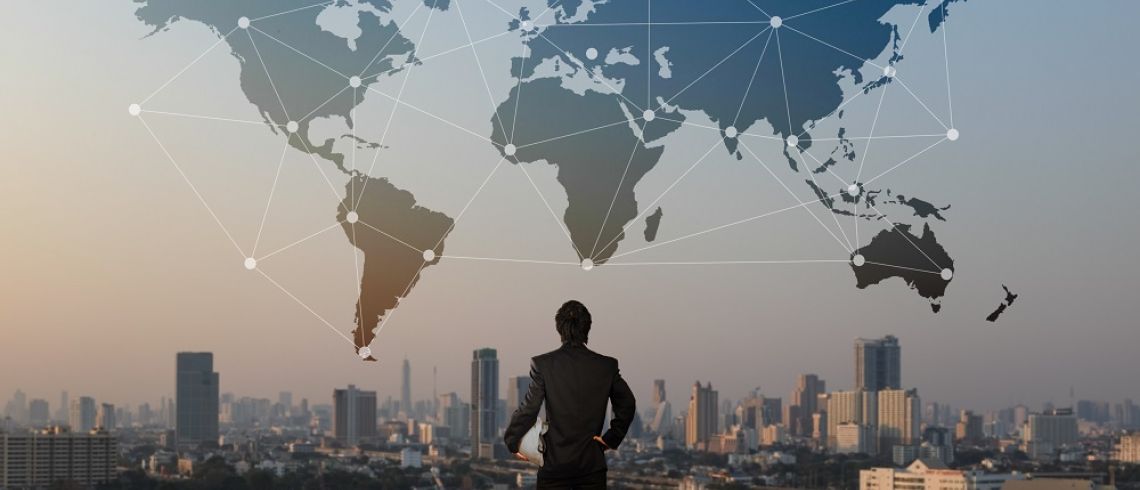International
The energy crisis precipitated by Russia’s full-scale invasion of Ukraine dominated the energy agenda agreed by G7 leaders as their summit in the Japanese city of Hiroshima came to a close the weekend before last. Their final communique stressed the importance of natural gas and LNG to the global economy “in the exceptional circumstance of accelerating the phase-out of our dependency on Russian energy”, while reaffirming their commitment to keep a limit of 1.5°C temperature rise within reach.
Meanwhile, a week of escalating climate activism at the annual general meetings (AGMs) of oil and gas majors came to a head last Friday when police used tear gas to disperse protestors at TotalEnergies’ AGM in Paris. Running parallel, Norway’s sovereign wealth fund said it would back activists’ resolutions at next week’s AGMs for ExxonMobil and Chevron. Norway’s sovereign wealth fund – the world’s largest, with a worth of USD 1.4 trillion – said last Friday that it would back shareholder resolutions at AGMs to be held this week by ExxonMobil and Chevron.
Middle East
Saudi Arabia – NEOM Green Hydrogen Company (NGHC) announced last Monday that it has finalised a financial deal to build a USD 8.4 billion green hydrogen plant, the world´s largest, according to the company. The firm also said that it has secured a 30-year off-take agreement with Air Products for all the green ammonia to be produced at the facility. An equal joint venture between ACWA Power, Air Products and NEOM, NGHC’s plant will integrate up to 4 GW of solar and wind energy.
North America
US – Chevron announced last Monday that it is to acquire Colorado-headquartered E&P company PDC Energy for USD 7.6 billion, including debt. According to Chevron, the acquisition will strengthen the company’s existing presence in the Permian and Denver-Julesburg (DJ) basins, and boost production by 10%. The acquisition of PDC provides Chevron with assets that the firm says are expected to deliver “higher returns in lower carbon intensity basins” in its home market.
US pipeline operator Energy Transfer has filed a strongly worded plea to the Department of Energy (DOE) for reconsideration of last month’s denial of a second export permit deadline extension for its proposed Lake Charles LNG project. The rehearing request filed last Monday claims that, if not reversed, the extension denial would “likely result in the project’s demise, contrary to the public interest” – putting at risk the USD 350 million already spent.
Europe
Russian coal is still finding its way to European ports despite a total ban introduced last year under the EU’s fifth sanctions package. So far in May, exports of Russian coal to the EU have been recorded for 18 individual vessels carrying the fuel to ports including Algeciras in Spain and Gdansk in Poland, according to research by the London Stock Exchange Group (LSEG). Data from LSEG’s coal trade flows model, built with AIS vessel-tracking data, indicates that 722,000 tonnes of coal will be exported from Russia and Latvia to EU member states in the month of May.
The European Commission (EC) last Wednesday recommended to phase out energy market support for all EU member states under proposed new fiscal policy guidelines. This comes as the EU nations collectively reduced energy consumption by almost 18% from August 2022 to March 2023. The EC said in a guidance under the 2023 European Semester Spring Package last Wednesday that all Member States should wind down the energy support measures in force by the end of 2023.
Germany – Germany is nearing a finalisation of plans to subsidise electricity prices for industry by EUR 4 billion (USD 4.3 billion) annually until 2030, in a move that economy minister Robert Habeck said would allow industry to stay in Europe rather than relocating overseas. The proposal has raised eyebrows including from the country’s tri-party leadership, as it is seen as providing unfair advantages to German companies. Habeck said last Monday that the ministry was discussing the implementation of the extension of the electricity subsidy for industry with members of the Alliance for Industry of the Future.
Securing Gas for Europe (SEFE) – formerly Gazprom Germania – is planning to sign its first long-term LNG contract this year, the company confirmed last week. SEFE has also said that it plans to expand the share of LNG in its portfolio in 2023 and that it is exploring opportunities with suppliers in the US and Middle East. SEFE‘s strategic objective is to increase the share of LNG in the company’s portfolio from 10% to 30% in 2023, a spokesperson for the company told Gas Matters Today, confirming earlier media reports.
Norway – Cost inflation has led to an increase of estimated investment into upstream and midstream operations by Norwegian oil and gas companies for 2023 and 2024, a National Statistics Office (SSB) survey said last week. According to preliminary figures from the Quarterly National Accounts, investment prices in the petroleum sector increased by 8.1% year-on-year in the first quarter of 2023, partly because the Norwegian currency has weakened against the US dollar and euro.
Netherlands – The Gasunie and Vopak-owned Gate LNG terminal in the Netherlands announced last Thursday that BP and PetroChina will each book 2 Bcm/year of regasification capacity from the facility for 20 years, underpinning the expansion plans that will take Gate's total capacity from 12 Bcm/y to 16 Bcm/y. This marks the first time a Chinese company books long-term regasification capacity at a European terminal and could signal that China is pursuing a bigger role as an LNG reseller.
Finland – Finnish gas company Gasum last Monday said it had terminated the supply contract for piped gas with Gazprom Export as bilateral negotiations had not resolved the dispute with the Russian company over payments in rubles. However, Gasum said the LNG supply contract it has with Gazprom remains in place. Gasum’s decision to terminate the supply agreement with Gazprom - effective as of this week - follows several months of legal proceedings and negotiations to find a settlement. Gazprom stopped supplying Gasum with piped gas in May last year.
Africa
Mozambique – The partners in the proposed Mozambique LNG project have agreed a USD 200 million budget for a new foundation that will initiate and manage humanitarian and socio-economic projects in the region in which the project is located. The announcement is yet another sign of the partners’ determination to resume construction on the USD 20 billion liquefaction project – so long as contractors agree to keep to their initial quotations for engineering works.
Namibia – The Namibian government last week signed a feasibility and implementation agreement (FIA) for Africa’s largest vertically integrated green hydrogen project. If it proves feasible, the USD 10 billion venture – backed by the EU – will export 2 mtpa of green ammonia before the end of the decade. The FIA, approved last Wednesday by Namibia’s Cabinet, is with Hyphen Hydrogen Energy, a joint venture set up by Nicholas Holdings, an infrastructure investor, and German renewable energy company ENERTRAG to develop green hydrogen projects in Namibia.
Mediterranean
Turkey – The CEO of Eni, Claudio Descalzi, has said political support from Turkey is necessary in order to get the proposed 10 Bcm/year East Med pipeline between Israel, Cyprus and Greece built. But support from Turkey, which historically has been strongly opposed to the project, seems doubtful as incumbent President Recep Tayyip Erdoğan secured another tenure in last week's election. Descalzi recently said that the proposed East Med pipeline, backed by Italian utility Edison and Greek natural gas supplier DEPA, will not be built without Turkey’s geopolitical support.
Russia & CIS Region
Russia – Gazprom reported net profit of RUB 1.2 trillion in 2022 (USD 14.9 billion), down around 40% on the previous year, the company announced last Tuesday. The company – which will not pay a full year dividend for 2022 – said increased tax payments in the second half of 2022 had a negative impact on earnings. Gazprom’s share price fell by around 4% amid a sharp year-on-year decline in net profit and the announcement that the company will not pay full year dividends for the first time since 1998, despite paying out RUB 1.2 trillion to shareholders in the first half of 2022.
Uzbekistan – US-based Air Products announced last week that it has acquired an existing natural gas-to-syngas processing facility in the Qashqadaryo province of Uzbekistan for USD 1 billion. The plant is processing 3.6 Bcm/year of natural gas to produce 1.5 mt/year of synthetic fuels for domestic use and potential export. Under the agreement with state-owned energy company Uzbekneftegaz (UNG) and Uzbekistan’s government, Air Products will own and operate two large-scale air separation units, two large-scale auto-thermal reforming units, and a hydrogen production unit within the Uzbekistan gas-to-liquid (GTL) complex.
Subscription Benefits
Our three titles – LNG Business Review, Gas Matters and Gas Matters Today – tackle the biggest questions on global developments and major industry trends through a mixture of news, profiles and analysis.
LNG Business Review
LNG Business Review seeks to discover new truths about today’s LNG industry. It strives to widen market players’ scope of reference by actively engaging with events, offering new perspectives while challenging existing ones, and never shying away from being a platform for debate.
Gas Matters
Gas Matters digs deep into the stories of today, keeping the challenges of tomorrow in its sights. Weekly features and interviews, informed by unrivalled in-house expertise, offer a fresh perspective on events as well as thoughtful, intelligent analysis that dares to challenge the status quo.
Gas Matters Today
Gas Matters Today cuts through the bluster of online news and views to offer trustworthy, informed perspectives on major events shaping the gas and LNG industries. This daily news service provides unparalleled insight by drawing on the collective knowledge of in-house reporters, specialist contributors and extensive archive to go beyond the headlines, making it essential reading for gas industry professionals.





